
Anna J Lamport was one of the students on Givat Haviva’s Intensive Arabic Semester this year. She received a grant towards the programme from Hashomer Hatzair UK Centenary Award. Below is her report on what was clearly a most rewarding time! All pictures are hers… Congratulations Anna and thank you for sharing your experiences with us, and with potential future course participants.
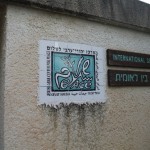 I participated in the 2016 Intensive Arabic Semester programme at Givat Haviva and would highly recommend the programme to anyone interested in studying Arabic though you will need to obtain your own medical and travel insurance. Over the course of five months, I learnt a mixture of Modern Standard Arabic (Fus’ha) as well as developing a deep understanding of local Ammiyya Arabic as it is spoken and used in the Wadi Ara area of Israel. I was also given exposure during the programme to the Bedouin, Egyptian, Syrian and Jordanian dialects.
I participated in the 2016 Intensive Arabic Semester programme at Givat Haviva and would highly recommend the programme to anyone interested in studying Arabic though you will need to obtain your own medical and travel insurance. Over the course of five months, I learnt a mixture of Modern Standard Arabic (Fus’ha) as well as developing a deep understanding of local Ammiyya Arabic as it is spoken and used in the Wadi Ara area of Israel. I was also given exposure during the programme to the Bedouin, Egyptian, Syrian and Jordanian dialects.
Attending the Intensive Arabic Semester programme is an amazing experience for the following four main reasons:
Firstly the programme director and the teaching staff promote a holistic approach to education and care for the well-being and development of course participants as unique individuals. This means that within the course framework, studying is bespoke and tailored to you. 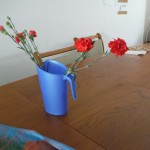 Personally my greatest challenge learning Arabic is pronunciation so I received extra speaking help. Beyond the classroom, whenever we wanted something like an extra heater or more bowls to eat out of, everyone at Givat Haviva was extremely generous and helpful. On International Women’s Day, I and the other female students received carnations and we were all often treated to motivational cakes and sweets.
Personally my greatest challenge learning Arabic is pronunciation so I received extra speaking help. Beyond the classroom, whenever we wanted something like an extra heater or more bowls to eat out of, everyone at Givat Haviva was extremely generous and helpful. On International Women’s Day, I and the other female students received carnations and we were all often treated to motivational cakes and sweets.
Secondly, the programme includes fascinating trips around Israel, which enables participants to meet local Arab speakers and to practice their language skills in real-life situations with the support of their teachers. Within our first few weeks in Israel, our group visited the Arabic village of Ba’arta, where our teacher introduced us to a local shop keeper. He kindly invited us into his general goods store and then gave us all free coffee. Since we were lacking a sharp kitchen knife to cut vegetables, we asked (in Arabic) if we could buy one from him. In the manner of true Arab hospitality, the store keeper gave us a knife and refused to take any payment for it. Instead he told us that our first ‘purchase’ was a present and encouraged us to return to his store in the future.
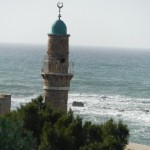 My favourite trip was to Northern Israel to meet a variety of minority communities including Circassians, Druzes, Arab Christians and Ahamadiyya Muslims. The rich diversity and harmonious co-existence of so many different faiths and ethnic communities were inspirational.
My favourite trip was to Northern Israel to meet a variety of minority communities including Circassians, Druzes, Arab Christians and Ahamadiyya Muslims. The rich diversity and harmonious co-existence of so many different faiths and ethnic communities were inspirational.
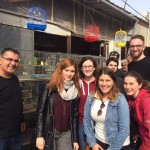 Even in weeks when no trip is planned, the variety of the programme ensures that studying at Givat Haviva is always a stimulating experience. Interspersed with Arabic grammar, vocabulary and speaking classes, there are classes in the history of the Middle East, Jewish Studies and Hebrew. I had very little background knowledge of Israel and Palestine and not a word of Hebrew at the beginning of the programme. Thanks to the excellent teaching staff of Givat Haviva, I learnt a lot and was pleased to find that these additional classes both complimented and enhanced my understanding of Arabic. For instance, in one memorable history of the Middle East class we learnt the origins of the words ‘Right’ ( Yameen) and ‘Left’ (Shamal) in Arabic, which come from the countries of Yemen and Eastern Africa as ships travelling up the Red Sea passed Yemen on their right side.
Even in weeks when no trip is planned, the variety of the programme ensures that studying at Givat Haviva is always a stimulating experience. Interspersed with Arabic grammar, vocabulary and speaking classes, there are classes in the history of the Middle East, Jewish Studies and Hebrew. I had very little background knowledge of Israel and Palestine and not a word of Hebrew at the beginning of the programme. Thanks to the excellent teaching staff of Givat Haviva, I learnt a lot and was pleased to find that these additional classes both complimented and enhanced my understanding of Arabic. For instance, in one memorable history of the Middle East class we learnt the origins of the words ‘Right’ ( Yameen) and ‘Left’ (Shamal) in Arabic, which come from the countries of Yemen and Eastern Africa as ships travelling up the Red Sea passed Yemen on their right side.
Part of the uniqueness of the Intensive Arabic Semester programme comes from its location on the Givat Haviva campus in Northern Israel, approximately an hour away from Tel Aviv. Nestled close to the large Arab cities of Umm al-Fahim and Baqa al-Gharbiya and also close to smaller Arab communities such as Zemer, Ara’Ara and Kafr Qari’a, Givat Haviva’s location means that students can practice their Arabic when shopping or going to nearby cafes and restaurants. Regularly, I would practice my Arabic with locals in everyday situations and always received a friendly response in spite of making many mistakes.
These everyday experiences enabled me to achieve a deeper insight i nto Arab culture: what is typical food for each meal, how the sounds of cockerels crowing and calls to prayer from mosques punctuate communities and how different age groups dress. Jeans are as popular in Israel as they are in Europe in spite of the hotter weather! Givat Haviva is also very close to the kibbutzim of Ein Shemer, with its large avocado fields, and Ma’anit, which both have swimming pools and convenience stores for students to use.
nto Arab culture: what is typical food for each meal, how the sounds of cockerels crowing and calls to prayer from mosques punctuate communities and how different age groups dress. Jeans are as popular in Israel as they are in Europe in spite of the hotter weather! Givat Haviva is also very close to the kibbutzim of Ein Shemer, with its large avocado fields, and Ma’anit, which both have swimming pools and convenience stores for students to use.
Givat Haviva itself is a beautiful and tranquil campus and is well-known locally as a beacon of safety within Israel. It is sufficiently far from both the troubled Gaza border and the Northern borders of Israel with Lebanon and Syria to be largely untroubled by potential rockets; it is a safe place to focus on studying Arabic within the turbulent and often violent world of the Middle East.
Whilst Givat Haviva is tranquil, it is also a bustling hive of constructive activity, which students on the Intensive Arabic Semester programme are able to explore. Among other interesting projects and buildings is the Moreshet Holocaust and Research Centre, where a special ceremony is held annually on Yom Ha’Shoah that I found very moving.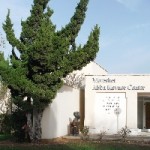
Overall, I had an awesome time on the Intensive Arabic Semester programme and hope that you will too!

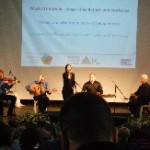
Off